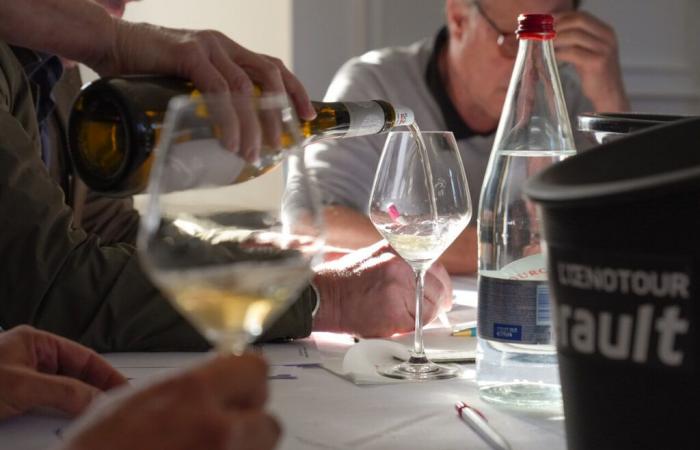Par
Juliette Radi
Published on
Nov. 29, 2024 at 12:12 p.m.
See my news
Follow Metropolitan
Viticulture adapts to the climate. The first wine-growing department of Occitanie, Hérault devotes 14% of its surface area for viticultureor 85,525 hectares of vines. This activity represents around 80% of local agricultural operations, or 6,300 estates. The Wine Observatory relies on heritage grape varieties to respond to a manifesto drought. A tasting brought together professionals and experts on Thursday November 14 at Château d'Ô, in Montpellier.
A conscientious selection
Twelve vintages were offered: six red wines and six white wines. These wines come from ancient, local and sometimes forgotten grape varieties, naturally adapted to arid climates. Among them: Œillade, Aramon, Clairette and Bourboulenc. Of the 12 vintages, 10 come from Hérault, the others from Aude and the Pyrénées-Orientales.
These grape varieties, resistant and less water intensive, are good candidates for facing contemporary climatic challenges. The department of Hérault has been listing these varieties since 2021. The essence and aim of this event is to support local wine growers and offer viable solutions for future generations of winegrowers.
An engaging tasting for the future
Next to 40 participantsfrom the wine world, discovered the vintages. After an individual tasting, group discussions provided an opportunity to discuss the aromatic qualities and potential of these grape varieties. The feedback is promising. The whites, in particular, seduce with their lightness and freshness.
Commit collectively
This initiative is part of the plan Hérault Irrigation which fuels experiments at the Trois Fontaines estate in the commune of Pouget. A program in partnership with the Federation of Protected Geographic Identifications (IGP) of Hérault and the Chamber of Agriculture of Hérault.
Follow all the news from your favorite cities and media by subscribing to Mon Actu.






